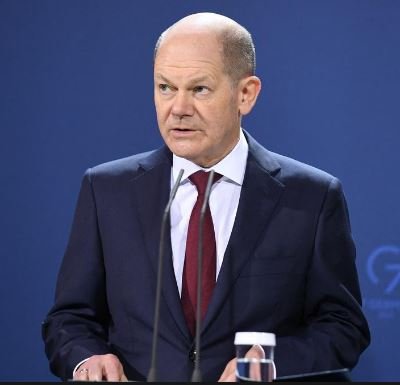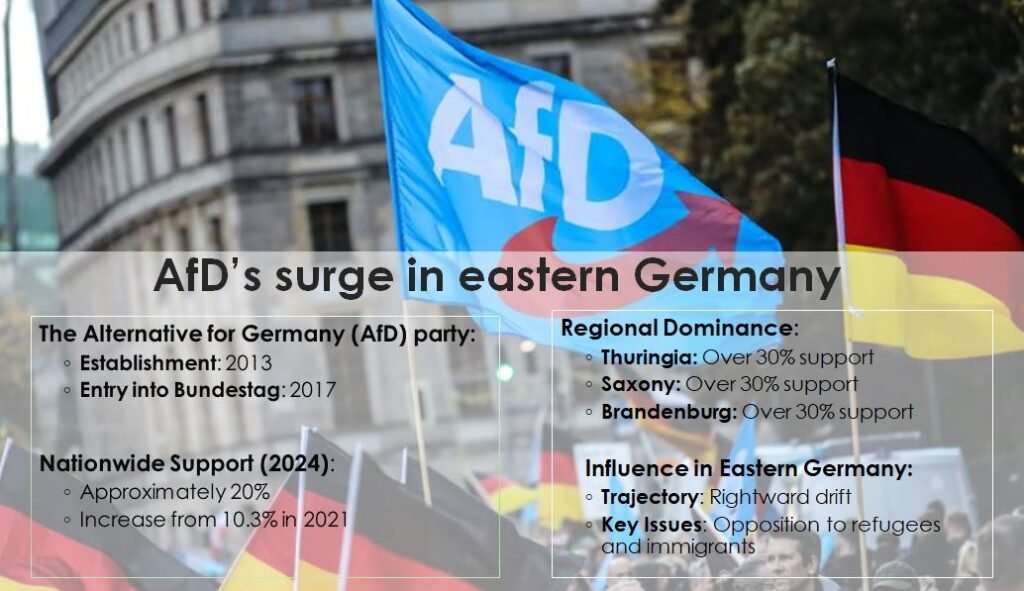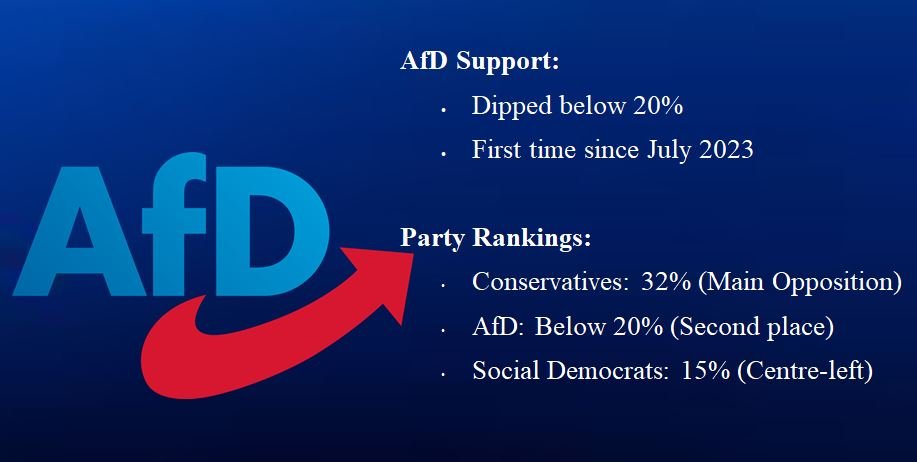Key Highlights:
- Approximately 200,000 individuals mobilized across Germany on Saturday, February 3rd, with the majority converging in Berlin
- An estimated 150,000 demonstrators congregated at the Reichstag parliament building in Berlin, rallying under the banner “We are the Firewall”
- The AfD originated as a Eurosceptic party in 2013 and made its inaugural entrance into the German Bundestag in 2017
- The AfD’s support dipped below 20% for the first time since July 2023
Demonstrations opposing the far-right Alternative for Germany party (AfD) are surging across the European Union country following revelations that two high-ranking party officials participated in a November 2023 meeting in Berlin, where the proposed mass expulsion of foreign-born citizens was discussed.
Approximately 200,000 individuals mobilized across Germany on Saturday, February 3rd, with the majority converging in Berlin, the nation’s capital, as demonstrations against the far-right Alternative for Germany (AfD) party continued into their fourth consecutive week.
Concurrent protests unfolded in various urban centers including Mainz, Dresden, and Hanover, underscoring a mounting concern over the escalating public backing for the AfD. An estimated 150,000 demonstrators congregated at the Reichstag parliament building in Berlin, rallying under the banner “We are the Firewall” to denounce right-wing extremism and affirm their commitment to democracy.
“Nazis, no thank you”, “It feels like 1933, AfD ban now!” and “Investigate banning AfD” were some of the signs that protesters held up across Germany to oppose AfD’s xenophobic agenda that reminds many of the dark times of Nazi Germany in the 1930s and 40s.
So, who exactly comprises Germany’s far-right AfD, and what prompts their anti-immigrant position to provoke widespread protests across the country?
Far-Right Meeting in Berlin Echoed the Nazi’s Final Solution
A “clandestine” meeting near Berlin, where a plan to deport millions of immigrants and refugees, some of them German citizens, was discussed. The investigative media organization Correctiv, exposed the report on January 10, 2024 causing enormous protests.
Martin Sellner, a leader of Austria’s Identitarian Movement, which follows the “great replacement” conspiracy theory that non-white migrants are conspiring to replace Europe’s “native” white population, was among the attendees. The anti-immigration party confirmed that its members were present at the meeting but refused to endorse the “remigration” project supported by Sellner.
The announcement of the gathering reverberated throughout Germany, particularly as the AfD experiences a surge in popularity in opinion polls, coinciding with the approach of three significant regional elections in eastern Germany, where the party garners its strongest support.
Interior Minister Nancy Faeser’s comments likening the far-right assembly to the infamous Wannsee conference, where the Nazis orchestrated the genocide of European Jews in 1942, stressed the gravity of the situation.
“Whether in Eisenach, Homburg or Berlin: in small and large cities across the country, many citizens are coming together to demonstrate against forgetting, against hatred and hate speech- a strong sign in favour of democracy and our constitution. I try to imagine how the more than 20 million citizens who have a history of migration feel. With the new citizenship law, we are saying to all those who have often lived and worked in Germany for decades, who abide by our laws, who are at home here: You belong to Germany.”
– Olaf Scholz, German Chancellor


The AfD originated as a Eurosceptic party in 2013 and made its inaugural entrance into the German Bundestag in 2017. Recent surveys indicate that it holds the second position nationwide with approximately 20% backing, a significant increase from its 10.3 % achievement in the preceding federal election of 2021.
Particularly influential in eastern Germany, the AfD dominates the polls in Thuringia, Saxony, and Brandenburg, all of which are poised for state elections later this year, garnering over 30 % support in each region.Top of Form
The party’s trajectory since its establishment has been marked by a consistent rightward drift, gathering momentum through its vehement opposition to refugees and immigrants. The AfD’s rise can be attributed to a confluence of factors, including the surge in immigration due to Middle Eastern crises and the conflict in Ukraine, alongside public discontent with the government’s economic strategies.
How the far-right party threatens to shake up German politics?

Despite a slight fall in AfD support in recent polls, the AfD’s success has caused concern for the mainstream parties in Germany, who are afraid it could dominate three state elections in eastern Germany in September.
The AfD’s support dipped below 20% for the first time since July 2023, according to a Forsa poll and voters ranked the nationwide demonstrations against the far-right as the top issue. The AfD remained in second place behind the main opposition conservatives who had 32%, while Scholz’s centre-left Social Democrats got 15%, the poll revealed.
AfD co-leader Tino Chrupalla told Deutschlanfunk that protesters should not be used to divert attention from the country’s actual problems, even though it was “legitimate to take to the streets with the government”. Chrupalla said Germany encompassed Germans with a migrant background and that his party had no plans to expel them.
In the face of rising far-right sentiments, Germany has become a battleground for democracy, with citizens united against the divisive ideology of the Alternative for Germany (AfD) party. Amidst the tumult, the resounding message of the protests reverberates: Germany stands as a bulwark against intolerance and extremism, safeguarding the principles of democracy, diversity, and dignity for all its citizens.


